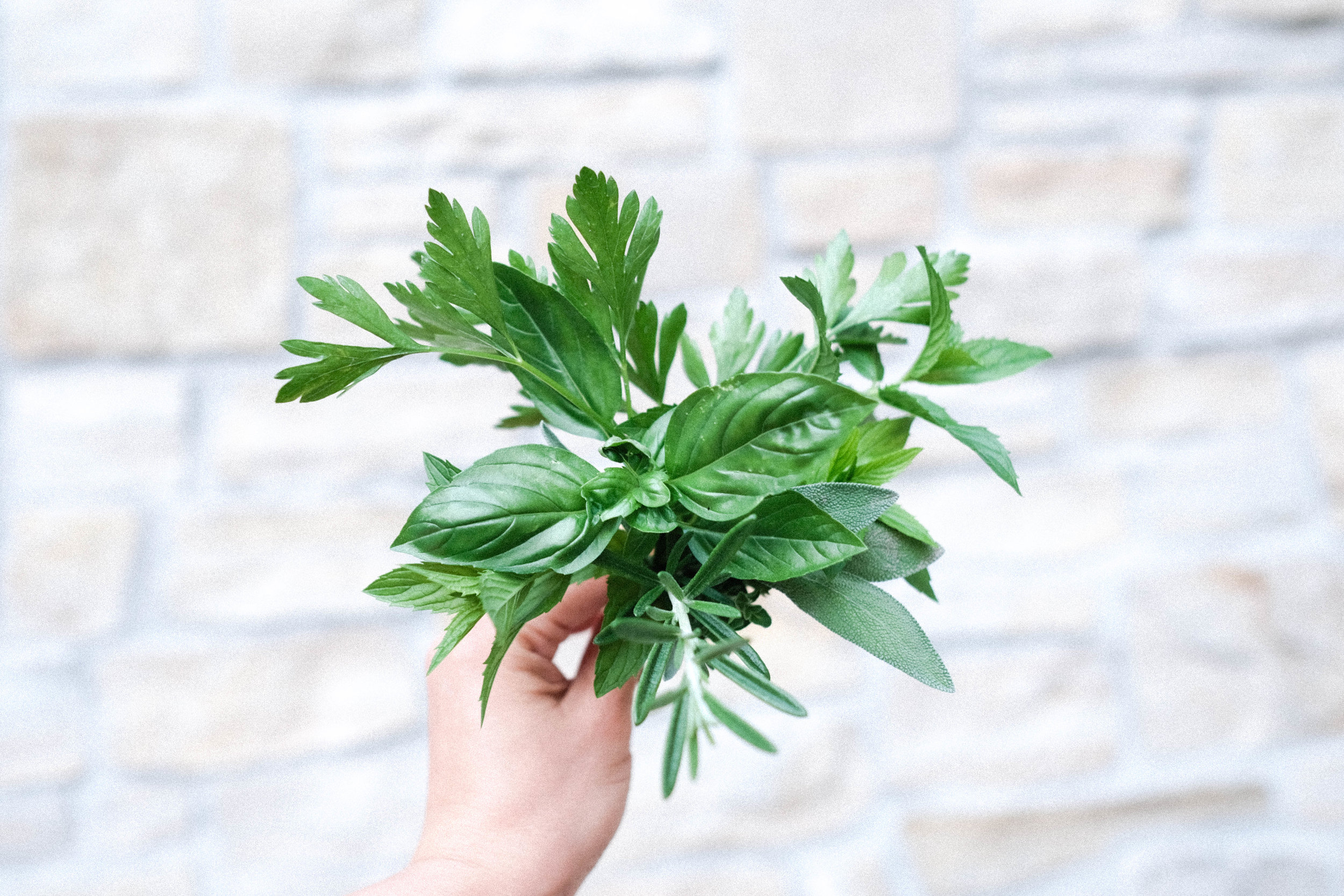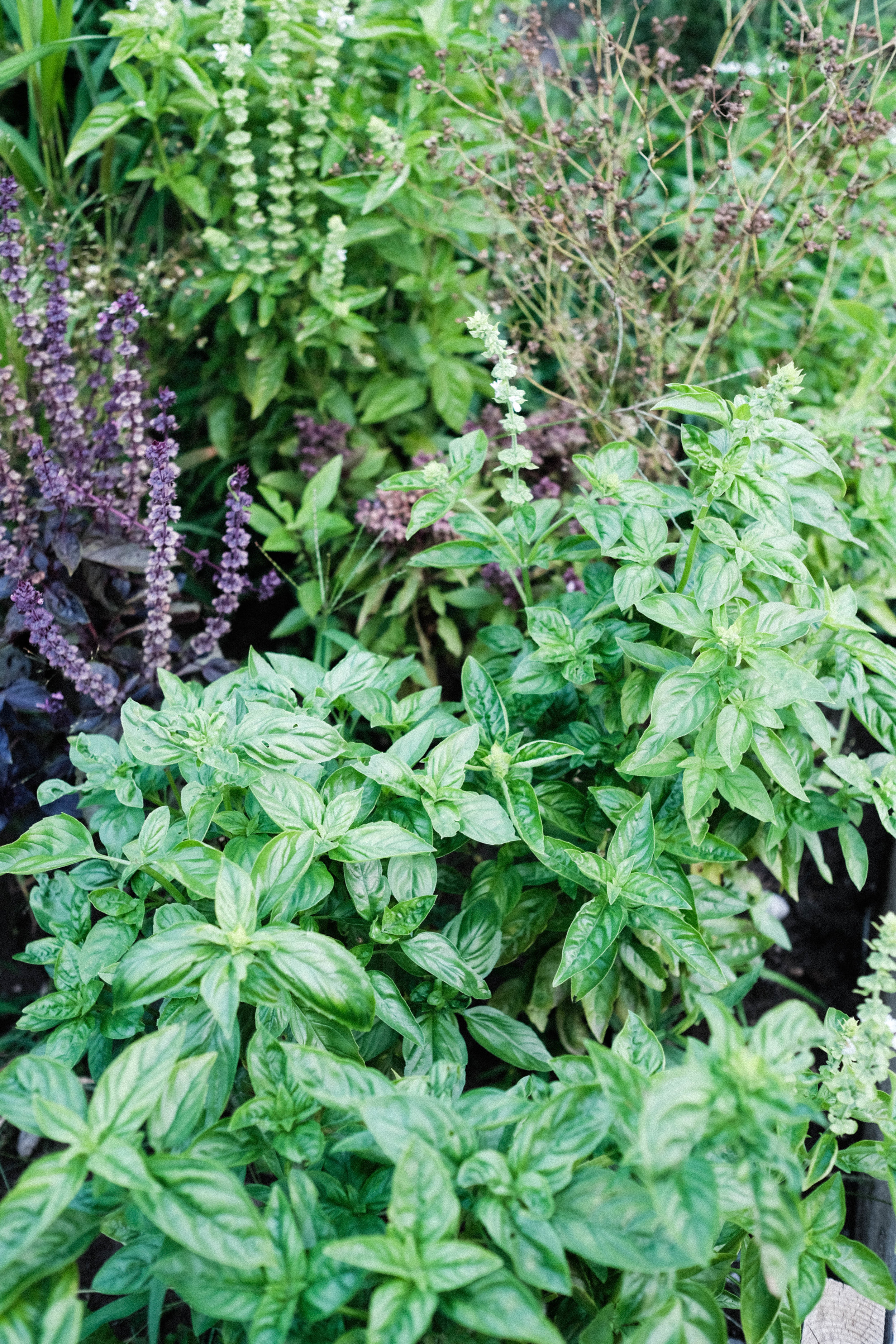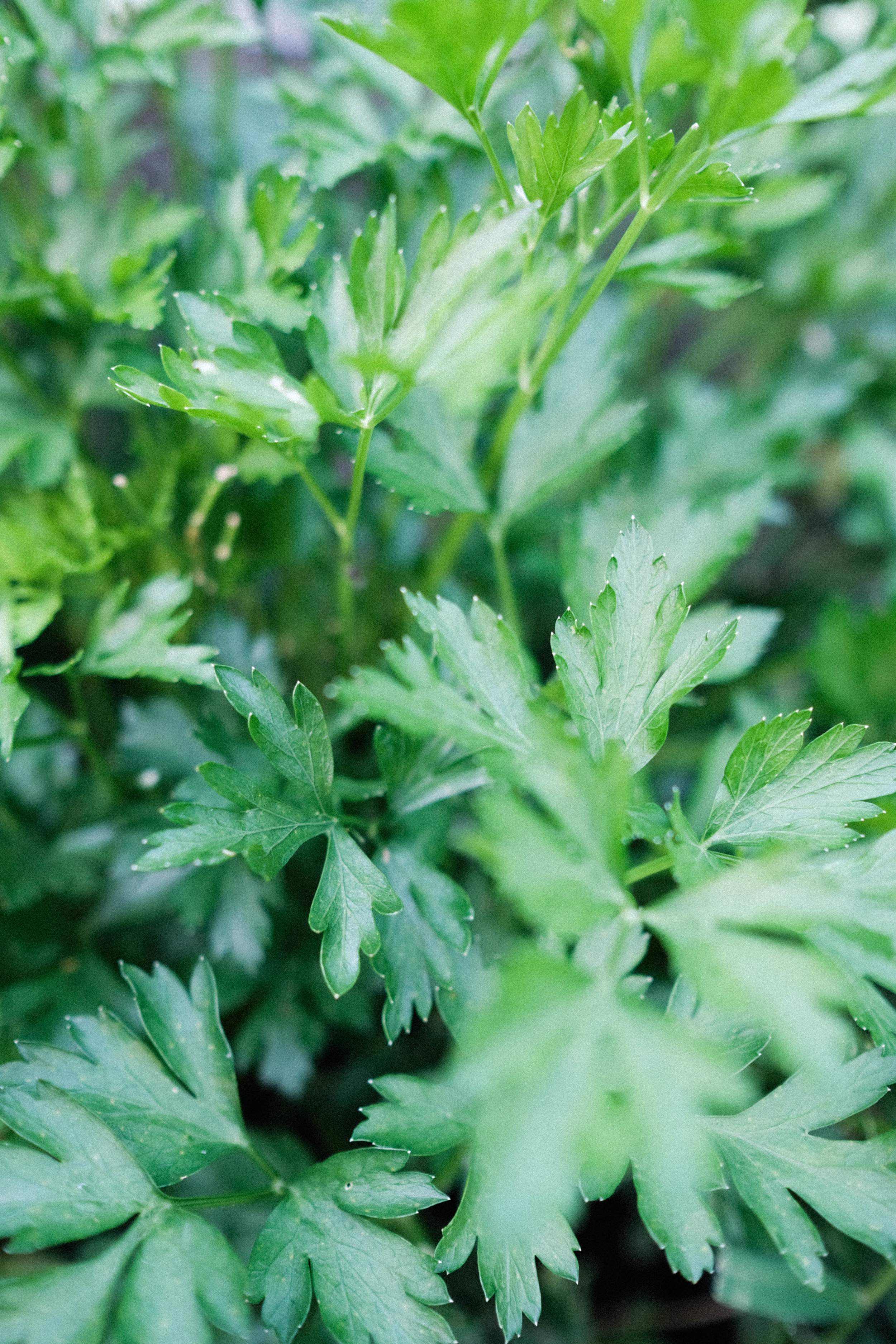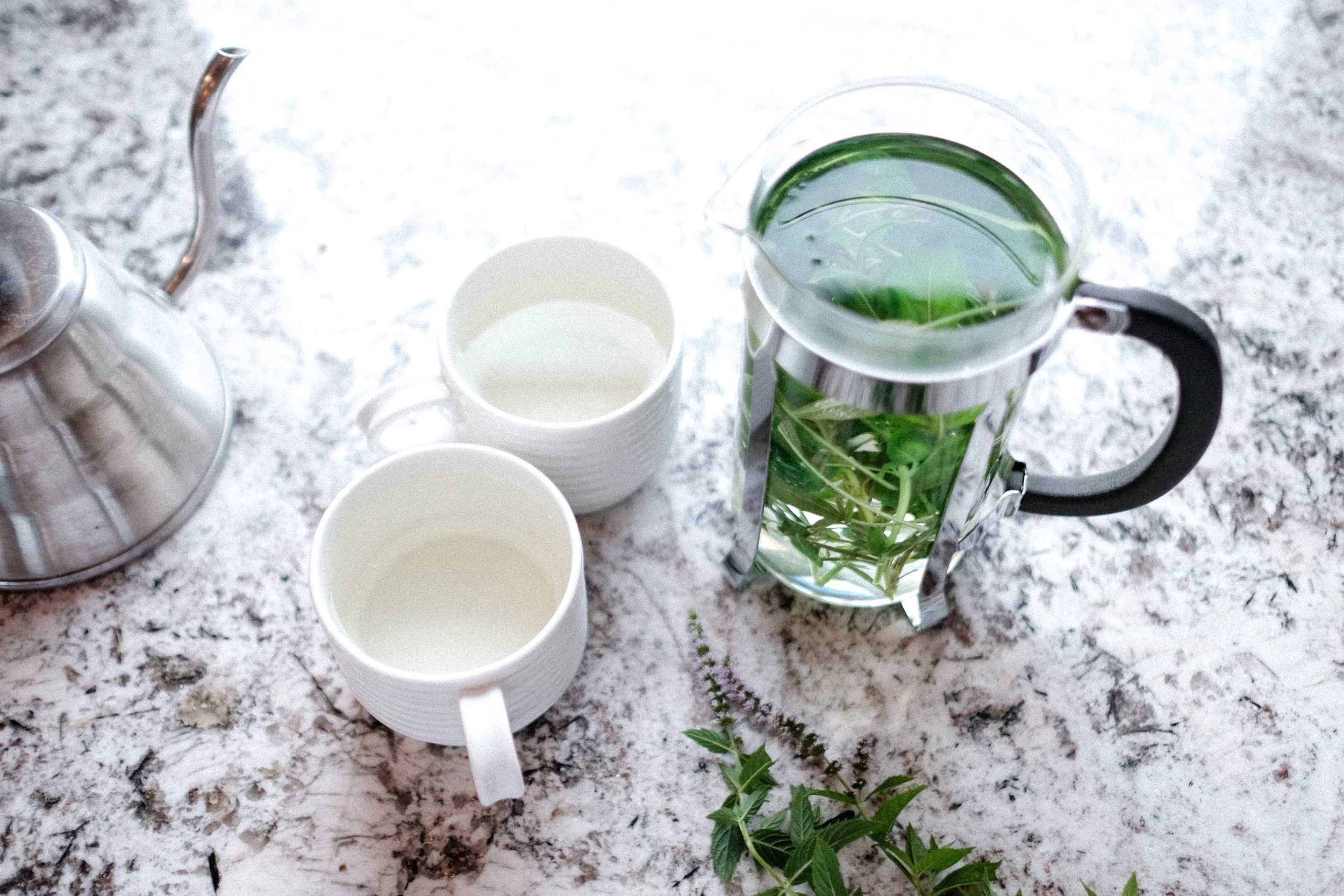Summer Garden Tea | featuring fresh & fragrant herbs

I know, I know—here we are with another herbal tea recipe on this coffee website! Perhaps I can qualify by saying that I've been brewing George Howell's 6-cup Chemex for two recipe on repeat this summer. His method is super easy, simple to remember, and pretty much a perfect solution for serving a house full of pour-over drinkers relatively efficiently in the mornings—I recommend it if you have a Chemex.
Today's recipe is a little different than the average herbal tea blend because it calls for fresh herbs—both sweet and savory. Inspired by our abundant summer garden, the resulting brew is crisp, warming, and incredibly aromatic. I would recommend sipping on this Summer Garden Tea after dinner as a digestive or as a soothing elixir before bed.
There are seven different herbs in this recipe and mint is the star of the show. The mint we have growing (pictured above) is actually not in our herb garden but in a flowerbed near the front door of the house. As mint is a perennial, every winter this plant goes dormant only to emerge bigger and healthier each spring. The mint is quickly taking over but we—nor the bees—mind.
As the original plant was given to us as a gift, identifying exactly what type of mint it is proves to be challenging. According to this paper, there are over 600 varieties of mint or Mentha—all with unique flavors and taste profiles (see: spearmint, chocolate mint, orange mint). Some good old google reseach and amature leaf analysis led us to believe that this species of mint is Mentha longfolia, which is commonly referred to as horse mint.
Mint plants like peppermint and horsemint get their cooling properties from a the presence of a chemical compound known as menthol. If you're interested to know how menthol works, here's a really great article from the conversation titled: Why menthol chills your mouth when it's not actually cold. On the other hand, spearmint's distinctive flavor comes from a chemical known as carvone.
Interestingly enough, Mentha or mint are a genus of a bigger plant family known as Lamiaceae. There are 7,000 species of Lamiaceae which include many of the fragrant and medicinal plants we humans use in cooking and wellness. In fact, five of the other herbs in this recipe are relatives of mint: rosemary, basil, sage, oregano, and thyme! Lavender is also a member of this not-so-exclusive club (see: recipe for Stress Free Tea, featuring Lavender)
It turns out that parsley is the outlier in this Summer Garden Tea. Flat leaf parsley, or Petroselinum crispum neapolitanum (phew... that's a name!) is related to carrots, celery, dill, coriander, caraway, etc., and is a species in the plant family Apiaceae. When it comes to identifying flavors in coffee, parsely water is used in World Coffee Reaserch's Sensory Lexicon as a reference for the flavor "Green" that is found on the Coffee Taster's Flavor Wheel.
Summer Garden Tea
Ingredients
- 3 sprigs Mint*
- 1 sprig Rosemary*
- 1 sprig Basil*
- 1 sprig Flat Leaf Parsley*
- 1 sprig Oregano*
- 1 sprig Thyme*
- 1 sprig Sage*
*all organic
Method
- Pick fresh herbs from garden (note: a sprig of thyme is much smaller than a sprig of parsley!)
- Rinse any dirt off herbs.
- Add to glass carafe such as a french press, Chemex or another heat tolerant glass vessel.
- Pour water just off boil over herbs.
- Let steep for 3 minutes or until desired strength.
- Enjoy!
One thing I love about all of the herbs in this recipe is how easy they are to grow. Most of the shrubs pictured here were planted in late May, managed well without any pesticides (organic is definitely the way to go!), and survived the Ontario drought this summer with little intervention from us. As they require little maintenance, some herbs also make useful indoor plants, and will usually thrive in a planter box by the window if the conditions are right! x















